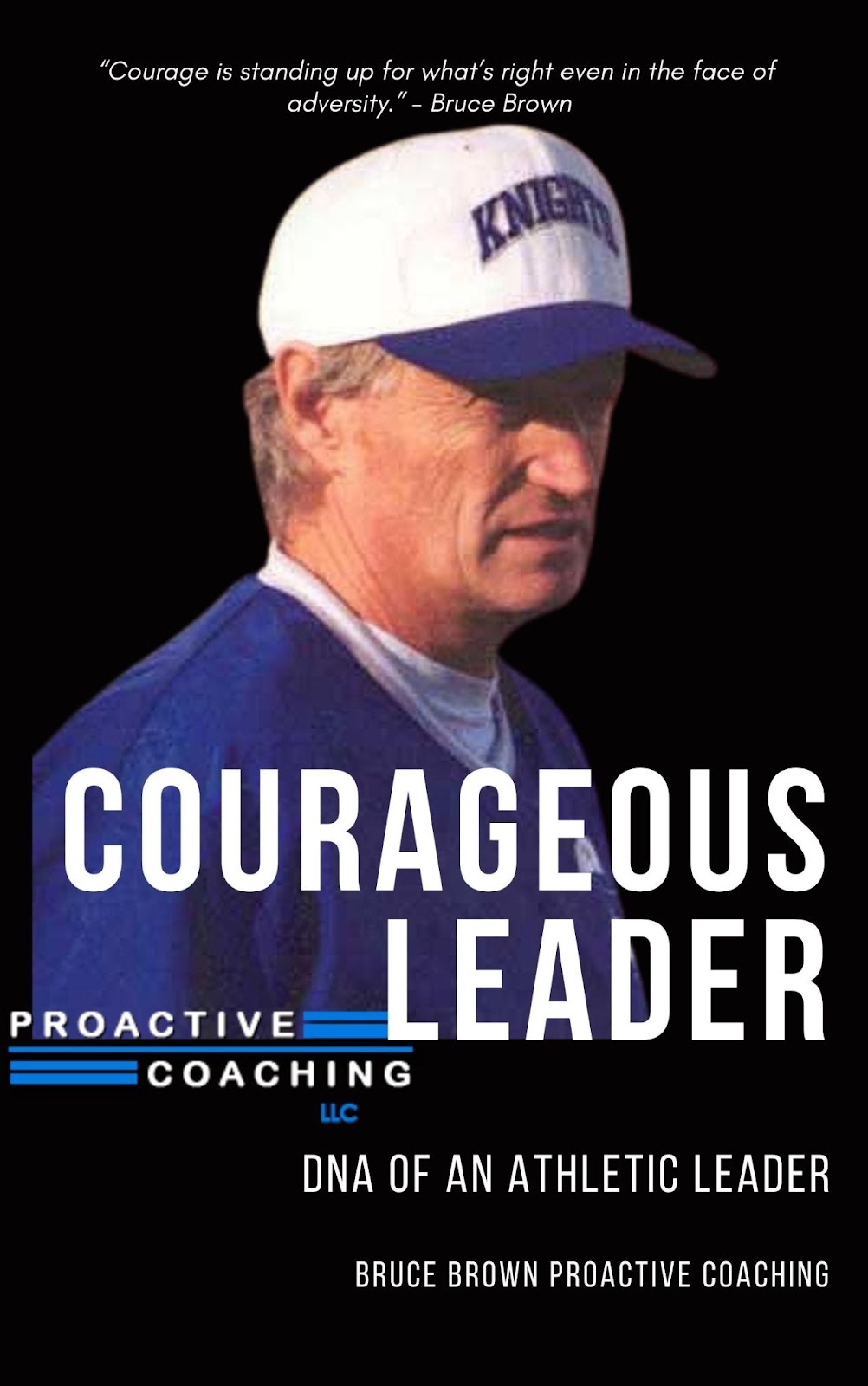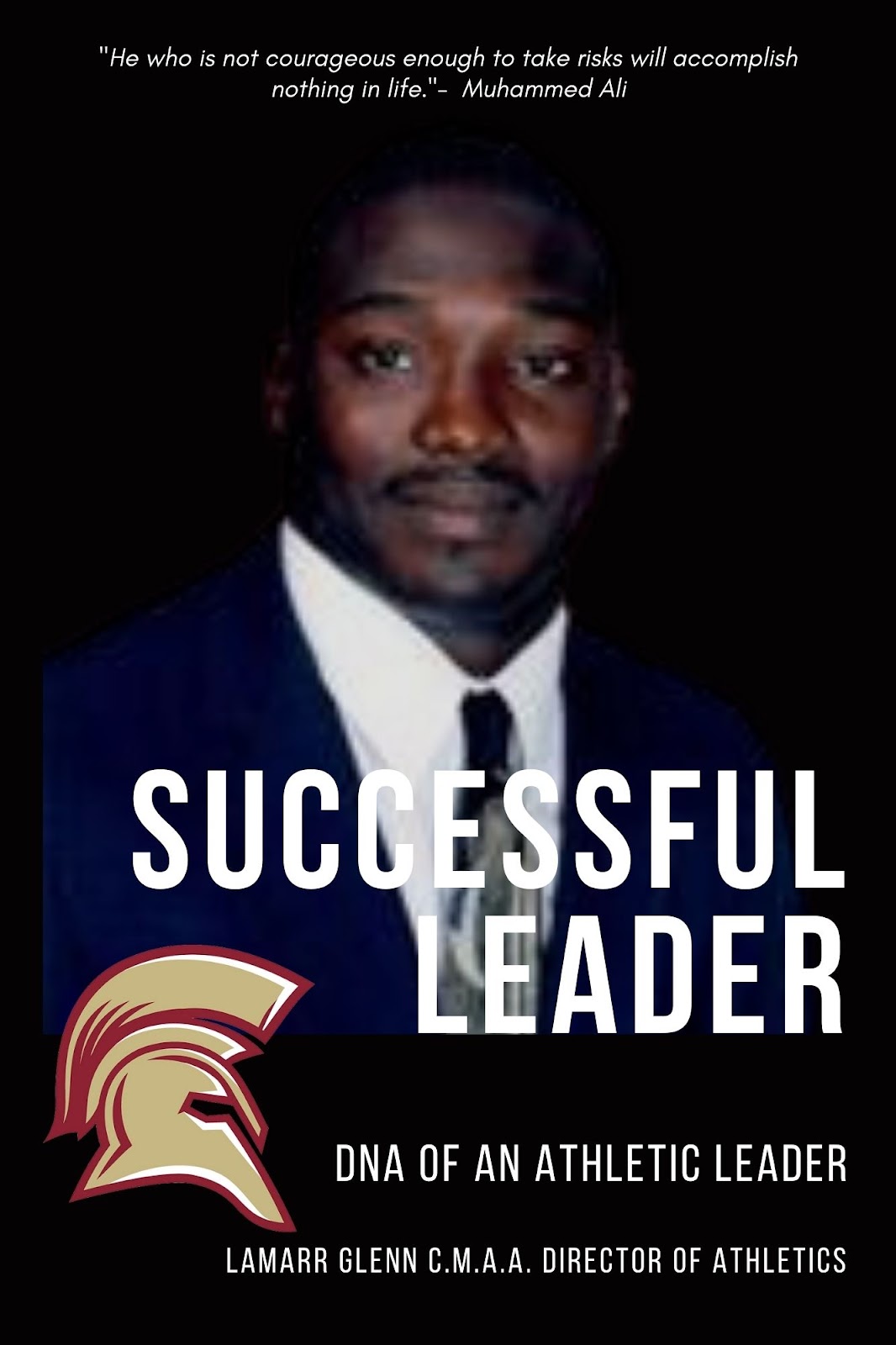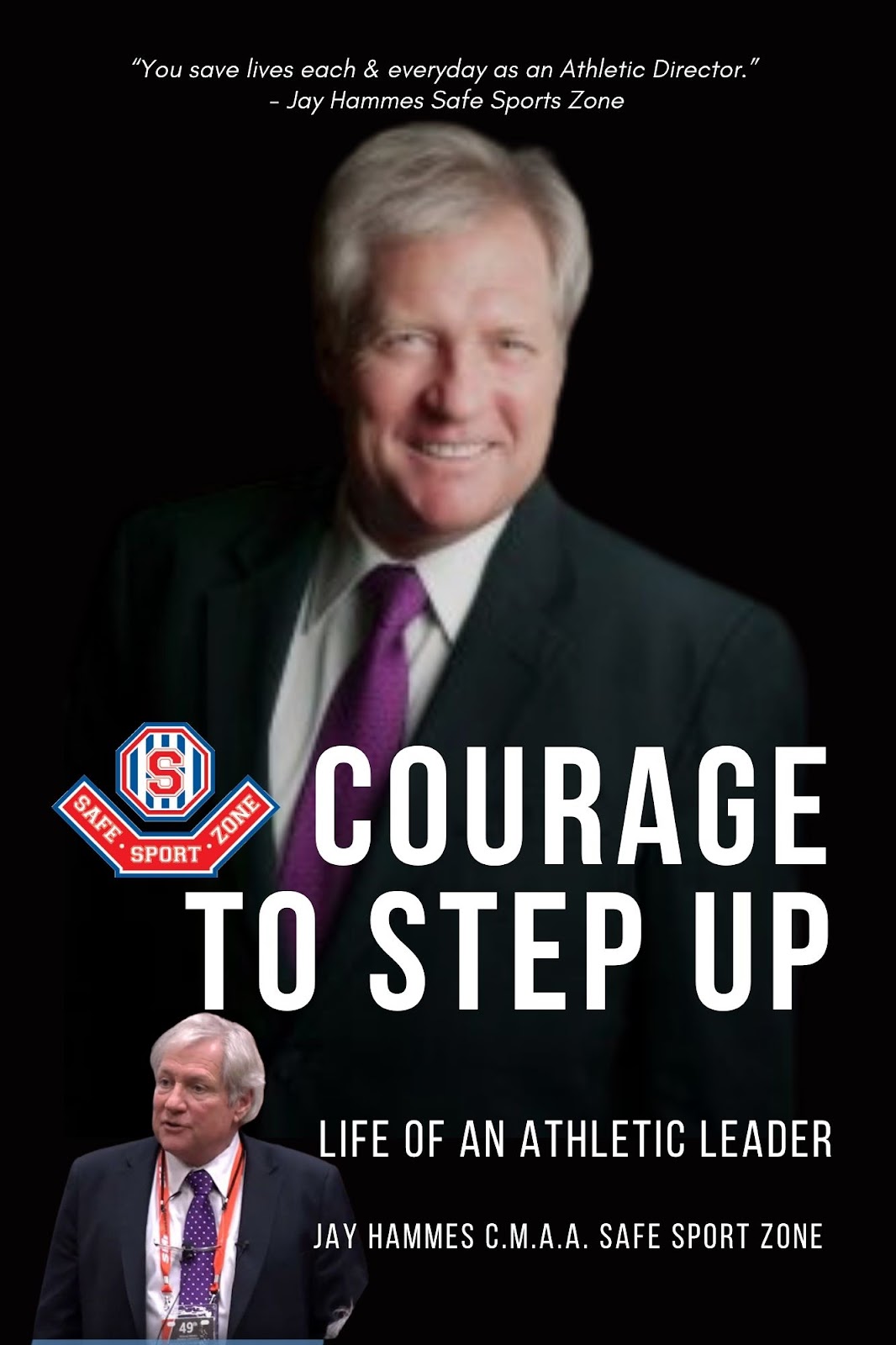Bound™ Exclusive: The DNA of an AD (Chapter 5)
As an Athletic Director, there will be times when you simply don’t know what the outcome of a particular action will be. In those moments, you’ll be tempted to avoid acting at all. But developing the courage to act in those situations will set you -- and your school -- apart from the rest.
Bound

The Courageous Leader
“Courage is not the absence of fear, but the triumph over it.” – Nelson Mandela

There are few things that an athletics director needs more than courage. The decisions you make will result in you being evaluated by coaches, parents, administrators, & students. They will criticize you from time to time. Sometimes you’ll make decisions and will fail miserably.
Maya Angelou said, “Courage is the most important of all the virtues because without courage, you can't practice any other virtue consistently.”
This is critical to understand. If you’re not courageous as an athletic director, you simply won’t develop any other skills necessary to be an effective leader.
- You won’t take appropriate risks because you’re afraid of failure.
- You won’t suggest new ideas because you’re afraid your upper administration will deny your suggestions.
- You won’t take bold action because you might be judged by your school community.
There will be times when you simply don’t know what the outcome of a particular action will be. In those moments, you’ll be tempted to avoid acting at all. But have the courage to fight through the fear to better the lives of your students.
It’s those moments when courage is needed more than ever. You need the courage to act boldly, regardless of the outcome.
William Faulkner said it this way, “You cannot swim for new horizons until you have courage to lose sight of the shore.”
As an effective athletic director, there will be times when you lose sight of the shore. When you’re launching a totally new initiative. When you’re introducing a new coach that’s never been a head coach before.. When you’re trying to hire a new coaching staff, or dealing with a struggling program.
If you’re going to achieve greatness as a leader, you must have the courage to lose sight of the shore. To keep going even when you’re not sure exactly how the journey will end.
If you display great courage in the face of adversity, people will follow you. They’ll admire and be inspired by your courage and will want to emulate you.
Why is courage important for a leader?
With less fear and more courage, coaches take on those difficult conversations, better handle change and speak up more willingly when important issues arise. In short, courageous coaches try more, trust more and tell more. As an athletic leader, your job is to instill courage inside of people— to encourage them.
Courageous leaders aren't afraid to honestly and openly seek feedback from those around them. They'll be open to listening to the unfiltered feedback (which may not necessarily be easy to hear) and will be willing to learn and make changes.

Advice from the DNA AD Pool
Courageous - “What does it mean to be courageous? To me it means not being deterred by the challenging and unexpected. As an AD, we are faced with many obstacles and decisions in which we do what has to be done whether it's the popular decision or not. No matter if we are liked or disliked for our decision, we are here to serve kids and we must be courageous with our thoughts and actions to keep kids as our first priority.” Adam McDonnell, Cedar Rapids Xavier Athletics Director
Fearless - “Being a fearless athletic administrator means taking risks and trying new things for your athletic department to try. Also being okay with failing before succeeding and learning from those failures.” David Olson, Roger Bacon Graduate Assistant
Fearless - “Fearless is a term I struggle with a bit. I don't think anything of merit or of significant impact or influence is ever easy or without risk. For that reason, I think there is always a level of fear to overcome in any endeavor. For me, it isn't a matter of being fearless. Rather it is about being so passionate, engaged and convicted in something that the energy to move forward and pursue is always greater than the reluctance that the possibility of failure can ever generate. Being fearless is about recognizing the fear, engaging with the fear...and then moving forward anyway!” Aaron Stecker, Cedar Rapids Kennedy Athletics Director
Unwavering - “Seriously, I believe right now, with the massive challenges we face, ‘unwavering’ would be a huge part of an ADs DNA. The pandemic, increased societal violence, poor sportsmanship exhibited by fans (specifically parents), lack of positive sportsmanship models across college and professional sports, and the never-ending financial crises ADs face, all force the beat down on ADs daily. And yet, athletic directors across the nation, and world, continue to rise against these negative forces to do their best to ensure a positive learning and competition experience for student-athletes within their purview. Every day, every hour, every minute, ADs get up off the mat and continue to fight the good fight!” Joe Keller, West Central District Director
“Courage is taking those first steps to your dream, even if you can’t see the path ahead.”- Unknown
Do You Have the Courage to be Vulnerable?
Many of us were taught to be strong and to keep our problems to ourselves, especially in the athletic world. We were taught that the world of athletics is a hostile place and we should practice “survival of the fittest.” As an athletic director it’s not easy to allow your school community to know your flaws, weaknesses and failures.
We’re ashamed that we’re not perfect, but make every effort to convince others that we are. Vulnerability doesn’t come easy, but it provides tremendous freedom and many other benefits. If you can be vulnerable, it means that you accept yourself and don’t feel the need to hide yourself from everyone else.
Use these ideas to practice self-acceptance through vulnerability:
Realize that fear is the obstacle. The fear of rejection and ridicule are the main culprits. You might also feel that you lack privacy if you let others see you for who you really are. The fear of rejection is a very common feeling amongst athletic administrators.
Think about the times you’re least likely to be vulnerable and authentic. When are you most likely to pretend to be something you’re not? In what parts of your life do you play small? How could you be more vulnerable in those areas of your life?
People that allow themselves to be vulnerable are respected. Everyone knows how challenging it is to be open and vulnerable. You’ll gain friends, respect and admiration if you can find the strength to be vulnerable.
People trust those that are vulnerable. When you’re vulnerable, people can see who you are. The fact that you’re willing to be so honest gives everyone insight into what makes you tick. People find this comforting and can relax around you.
Everyone has similar issues and challenges. You might be worried that your weaknesses and concerns will make you seem odd. People are more alike than not. Everyone is struggling with the same issues. When you allow yourself to be vulnerable, you’ll also help others to see that their concerns are normal, too.
Start small. There are many ways you can make yourself vulnerable, but not too much! In time, you can up the stakes as your confidence and courage grow.
Give a sincere thank you and explain why you’re so thankful.
Admit a small weakness. You might admit to someone that you’re not very patient or maybe you’re not organized.
Apologize for something that you did or failed to do. Everyone has plenty of opportunities to do this.
Talk about a time you failed. Pick a small failure that you can laugh about.
Do something in front of others that you’re not good at. Maybe you’re a terrible bowler, golfer or you are a terrible singer..
Your relationships are strengthened. Being vulnerable encourages others to do the same. You’ll become closer to your friends, family, student-athletes and coaches. Vulnerability creates a greater and deeper bond.
Vulnerability creates emotional risk and uncertainty, but avoiding vulnerability creates other challenges. You’re never free to be yourself when you hide yourself from the world. You can feel lonely, disconnected and frustrated. Your relationships lack depth.
Learn more about you and accept yourself. You’ll need to develop courage and personal insight to be vulnerable. Vulnerability can be frightening, but it is a necessary part of freeing yourself from your emotional baggage. If you want to fully develop as a person, vulnerability is part of the cost.
Take one action today to show a little vulnerability. Ask your coaches or administrative team to do something for you or to give you something that you need. A ride to the insane asylum doesn’t count! Ask for support or advice. See what happens.


COURAGEOUS LEADER
Eighty percent of the lawsuits in the school industry are about supervision, or lack of. The courts have consistently ruled that schools must provide a reasonable standard of care.
Having witnessed many after-school events across the country, I can easily state that the biggest problem with secondary educational events is the lack of active management. Many colleges and universities are not spending the sufficient time teaching future educators how to supervise. Schools assume future teachers know how to manage. Besides teachers, we have many assistant teachers, hall monitors, bus drivers and school staff working events.
Most after-school event problems are preventable if the host school will emphasize techniques on how to supervise.
We make the biggest mistake in allowing event workers to watch, not work the event. Every worker should protect spectators in their assigned area. They should scan their section of bleachers every few minutes, looking for frustration and anger issues: listen for loud, obnoxious voices criticizing officials, opponents and coaches.
Once identifying the misguided fan, watch them by using pattern matching recognition. Identify them with apparel; it will be easier to pick them out of a crowd.
Sometimes we can de-escalate a spectator just by watching them if they know it. If they continue to abuse verbally, try a non-verbal hand or facial expression, letting them know their behavior is unacceptable.
A worker could position him or herself closer to the irate fan. If they are sitting 30 rows up, sit by them. If they are closer to the playing surface, stand by them.
If the fan continues to be upset, the event worker needs to address the individual. Don’t wait! If this negative behavior happens in the first quarter, do not wait until the fourth quarter to intervene.
Lower your voice and keep all dialog in question format when addressing the abusive fan. Be compassionate, kind and considerate. You have no idea what else is going on in their life. Today, many of us have issues. Try to memorize phrases like, “I’m sorry, Sir, can I help you?” Be willing to listen and watch 100% of the time when speaking with them. Once diffused, try to set limits and give them choices. “Sir, you do want to stay and watch your child play, right? If so, you need to follow our spectator code of conduct rules.”
Also, try the tag-team de-escalation technique. In advance, everyone on your team must agree. Behavior influences behavior. You cannot de-escalate situations if you are angry. If a team member is having difficulty with a fan, save them by stepping in and saying, “ I got this.”
We can do this, but keep in mind: it will not happen overnight. Continuous improvement is the name of the game -- practice, practice.
For more resources Google Crisis Prevention Institute and check out Verbal Intervention Training: Hands-off Policies, providing a safer environment at your events.

About Scott Garvis
Scott Garvis has been a leader and innovator in intercollegiate and interscholastic athletics development and fundraising for more than 25 years – as an athletics director, coach, association board member, adviser and editorial contributor.
Scott has a record of excellence as Athletics Director, Director of Activities and Assistant Principal, having led the athletics departments at six high schools or school districts in three states. He has achieved unparalleled success at all levels of high school athletics: large public school districts, a small public high school, a private school, and with state and national athletics administrator associations.





